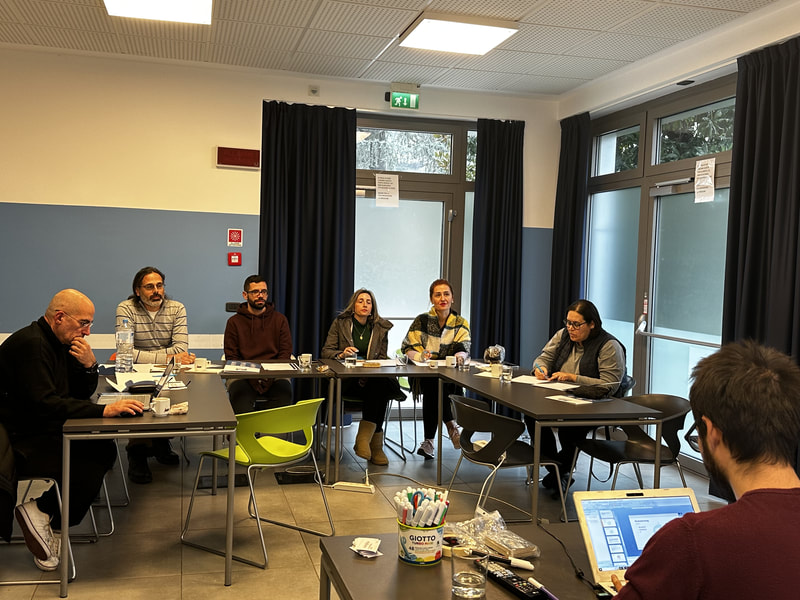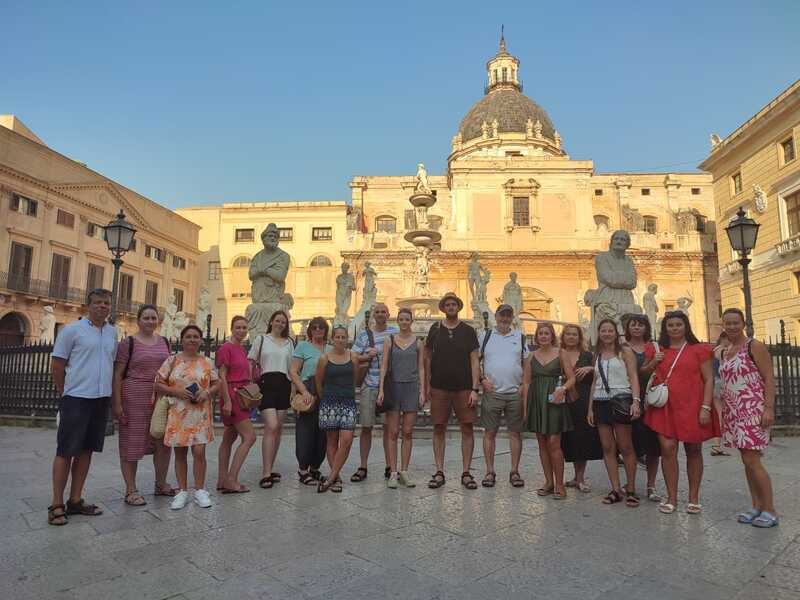|
Why is it that we hear so often about stress and conflicts? What tools can we bring to better manage the stressful and conflicting situations we encounter throughout our lives? We tried to give an answer to these questions during the new edition of the course “Stress and Conflict Management: the way to resilience and satisfaction” which took place in Palermo from 27/08/2023 to 02/09/2023. The participants came from all across Europe, with Boglárka from István Széchenyi Bilingual Secondary School of Economics in Hungary, Aniko Budapest III. Kerületi Krúdy Gyula Angol-Magyar Két Tanítási Nyelvű Általános Iskola in Hungary, Sandra, Danuta, Ewa and Katarzyna from Specjalny Ośrodek Szkolno Wychowawczy dla Dzieci i Młodzieży Niepełnosprawnej in Poland, Anna, Daiga and Paula from Babites Secondary School in Latvia, Zoltan from Klebelsberg Kuno Általános Iskola és Gimnázium in Hungary, Pauliina from Sastamalan Opisto Sastamala Community College in Finland. To begin with, we tried to give a definition to what is “stress” and what are the main causes and consequences of a stressful situation, investigating concepts such as "stressors" and the “Flight or Fight response”, reflecting also on the positive and negative aspects of stress (Eustress vs. Distress). Simulations, role plays, and hands-on activities guided us in discovering cognitive and behavioral coping strategies, and in exchanging ideas and best practices to use at school to integrate these activities into the curriculum. Next, we looked at how communication techniques are crucial when it comes to stress and conflict management. The communication style used, which can be assertive, aggressive, passive, or passive-aggressive, can have direct impacts on the development of situations and relationships with others, especially when we talk about setting out boundaries and saying “No”. In addition, we investigated the importance of developing emotional intelligence in stress and conflict management, and in particular discussed the value of empathy in the relation with others. We then addressed the concept of conflict, trying to reflect that conflict is not always negative, but is often a source of growth, change and rebirth. Without conflict it would be impossible to change some situations that we do not like or to affirm our ideas, values and opinions. Finally, we saw how mindfullnes can be a way to become more aware of what is happening to us and to welcome the present as it is: “You can’t stop the waves, but you can learn to surf”, Jon Kabat-Zin. To conclude, we would like to share with you a comment of one of the teachers of the group, Pauliina: “What great experience this has been. I'm absolutely sure I can be a better teacher and share my knowledge to my students and colleagues. Thank you!” Discover more about this course here.
|
Welcome to the ELA Blog. Here you will find articles and photos of our courses and have a look at the topics addressed during the week in Bologna, Palermo and Tenerife. You will also have the chance to take a peek at our projects and check out what we have been up to.
Archives
July 2024
Categories |
-
Course catalogue
- 2023-2024 course catalogue
- Soft Skills >
- ICT and New Technologies >
- Inclusion and Diversity >
-
Innovative Teaching Methods
>
- Innovative teaching methods discovery
- Non-formal education teaching methods
- Dual education and work-based learning
- Teaching leadership and entrepreneurship
- Project based learning
- Game based learning and gamification
- Green skills
- Outdoor education
- Outdoor education trekking edition
- Promoting creativity and critical thinking
- Languages and EU projects >
- Preschool >
- Erasmus Plus KA1
- What we do
- About us
- Locations
- Blog
- Contact us
 English
English български
български Čeština
Čeština Español
Español Français
Français ελληνικά
ελληνικά Italiano
Italiano Polski
Polski Português
Português Română
Română

 RSS Feed
RSS Feed









